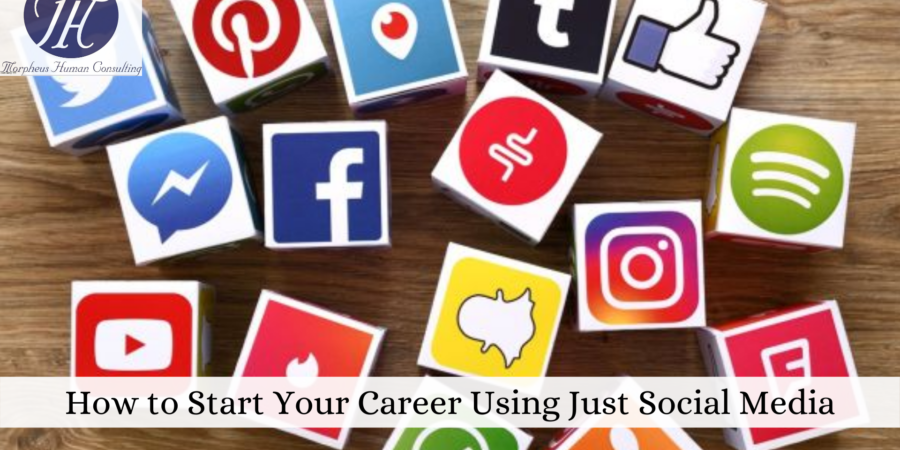How to Start Your Using Just Social Media
When it comes to career progression, using social media to find a job or for professional development is something not many think about. Social media can be very divisive when thinking about its impact. From trolls and censorship to worries about recruiters ‘spying’ on you, it can get quite a negative perception.
However, it doesn’t always have to be a negative thing. The power of social media can work wonders and bring so much positivity to people’s lives. One of the positives of social media can actually be helping with the job search rather than hindering it. If you’re just starting on your career path, Simon Owen, MD of the video production company, Standby Productions, shares his tips for using social media to your advantage.
You are your own brand
So, how can social media help your career? First, it’s time to start thinking of yourself as your own brand. Anytime we log in to social media and press that ‘post’ button, we are representing our own core values. Remember that what is posted on the internet is there forever! Statuses and images can be screenshotted, feeds can be searched and hashtags used means your posts can gain more visibility. This means putting more thought into how you conduct yourself online, being mindful of your brand and how you convey your values.
Luckily, there are better privacy options so you don’t have to have all your thoughts made public but sometimes they may pique an interest in some employers and make you stand out from the crowd. Being more thoughtful with your content and posts could lead to making a great impression with the right people. If you’re quite the industry expert or are a creative person, social media could be your CV!
Alternative CVs
It’s a competitive world out there and with so many jobs adapting and evolving into the digital sector, many recruiters are turning to social media to find their next talent. Using video content can draw more engagement and you don’t have to have a background in film and editing to get creative with videos.
Spending the time to make personalized, high-quality videos is a great investment for your future and career. Just by browsing on some people’s social media profiles, particularly LinkedIn, you can find creative video CVs summarising their achievements and experience
How to use social media to create a portfolio
-
Instagram
This is a great platform for video content and being creative with profile design. The app allows you to highlight stories to your profile and give them cover photos and titles. Here you can pinpoint relevant stories like events you’ve helped organize or promote or sort stories into relevant skills. It will allow employers to easily and quickly navigate through your skills by viewing highlights at the top of your page.
-
Twitter
To use this platform as a portfolio tool, you should build your following up by giving away snippets of useful info related to your field along with relevant hashtags. If you have a blog, always link to it along with a catchy caption to leave viewers wanting to read more. If your Twitter is the place you like to vent or to remain personal – with the caveat ‘all views my own’ – then make a separate Twitter profile solely for your passion or expertise. Get involved with hashtag trends to increase your reach and visibility.
-
Facebook
Make sure your cover photos don’t give off the wrong impression as these are public regardless of your settings. Get creative with apps and make them original by using your brand colors and adding your title and other social media platforms like your Instagram and Twitter handles. Make your job titles and projects public so employers can quickly scan your ‘about’ info. Your timeline should be private and only for friends but make exceptions when it comes to industry posts, if you have a blog to share, a useful tip or simply want to share another post related to your field, then make these posts public to let employers gain a better insight.
- Make connections
No matter what platform you’re on, make sure you’re connecting with the right people. LinkedIn is extremely good for this as people love to connect with others in their industry and, perhaps more importantly, to be seen to be connecting. Instagram and Twitter are no different when it comes to making valuable connections and it is worth dedicating some time each week to searching, following and engaging with people that you think are going to help with your career and widening your reach.
